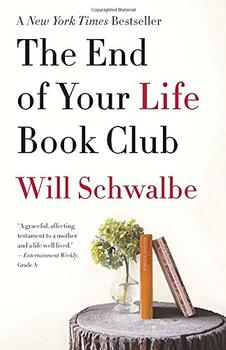Summary | Excerpt | Reading Guide | Discuss | Reviews | Beyond the Book | Readalikes | Genres & Themes | Author Bio

One of the organizations Mom was busiest with was a foundation to help establish libraries in Afghanistan. She fell in love with that country and its people the first time she went there, in 1995, going across the Khyber Pass from Pakistan to report on the conditions of refugees. She went back to Afghanistan nine times, always for the Women's Commission or the International Rescue Committee (which is the Women's Commission's parent organization), to learn ever more about the changing plight of refugees there; then she would come back to the United States and advocate for policies that would help them, especially policies attuned to the lives and needs of women and children. Her trips on behalf of refugees took her not just to Kabul, and not just all over Afghanistan - including to Khost, where she spent the night in a run-down guesthouse, the only woman among twenty-three mujahideen warriors - but all over the world, including to most of the countries in Southeast Asia and West Africa.
This year, while in Florida, she was in constant contact with a man named John Dixon, an old Afghan hand who knew as much about the country as almost anyone and was helping achieve the vision of a person who knew even more than he did: a seventy-nine-year-old woman named Nancy Hatch Dupree, who for decades had divided her time between Kabul and Peshawar. Mom and John, both of whom had met with Nancy many times in Pakistan and Afghanistan, were working together to form a U.S. foundation to help Nancy raise money for a national cultural center and library - something Afghanistan didn't have - to be built at Kabul University, and for mobile libraries for villages all over the country, bringing books in Dari and Pashto to people who'd rarely or never seen a book in their own language if they'd seen a book at all. Nancy and her husband, who'd died in 1988, had amassed a collection without rival of 38,000 volumes and documents on the crucial last thirty years of Afghan history. So she had the books; what was missing was money and support.
In the spring of 2007, Mom was given the opportunity to join an International Rescue Committee delegation to Pakistan and Afghanistan, and everything seemed to be coming together nicely: in Peshawar and Kabul, she'd be able to spend a lot more time with Nancy to firm up a plan for raising money for the libraries. While in many families it would be big news if one member was to up and visit one of the most dangerous places on earth - a place where Mom had previously been shot at (though she always said they were shooting at the tires, not at her), where she had met with the military leader Ahmed Shah Massoud (who was later assassinated by two suicide bombers), where the Taliban still controlled much of the country, and where more than two hundred members of the U.S. and Coalition forces would die before the year was out - for our family it was business as usual. I can't recall if I even remembered Mom was going there, she traveled so much.
So we didn't expect anything would be different this time she went traveling; nor did we suspect anything would be different when she returned sick. She was no sicker than she usually was after a visit to a war-torn land. She came back from most of her work trips - Liberia, Sudan, East Timor, Gaza, Côte d'Ivoire, Laos, to name a few - with some kind of ailment: a cough, exhaustion, headaches, a fever. But she would simply soldier on with her busy life until her various ailments faded away.
There had certainly been occasions when Mom came back from a trip sick and stayed sick for a long while. There was a cough she acquired in Bosnia that lasted about two years, becoming so much a part of her that we noticed it only when it suddenly disappeared. And there were various skin ailments: spots, bumps, and rashes. But in all those cases, she didn't get sicker. She came home sick and stayed sick until she got well or until everyone, including her, forgot that she'd ever been better.
Excerpted from The End of Your Life Book Club by Will Schwalbe. Copyright © 2012 by Will Schwalbe. Excerpted by permission of Knopf. All rights reserved. No part of this excerpt may be reproduced or reprinted without permission in writing from the publisher.




They say that in the end truth will triumph, but it's a lie.
Click Here to find out who said this, as well as discovering other famous literary quotes!
Your guide toexceptional books
BookBrowse seeks out and recommends the best in contemporary fiction and nonfiction—books that not only engage and entertain but also deepen our understanding of ourselves and the world around us.